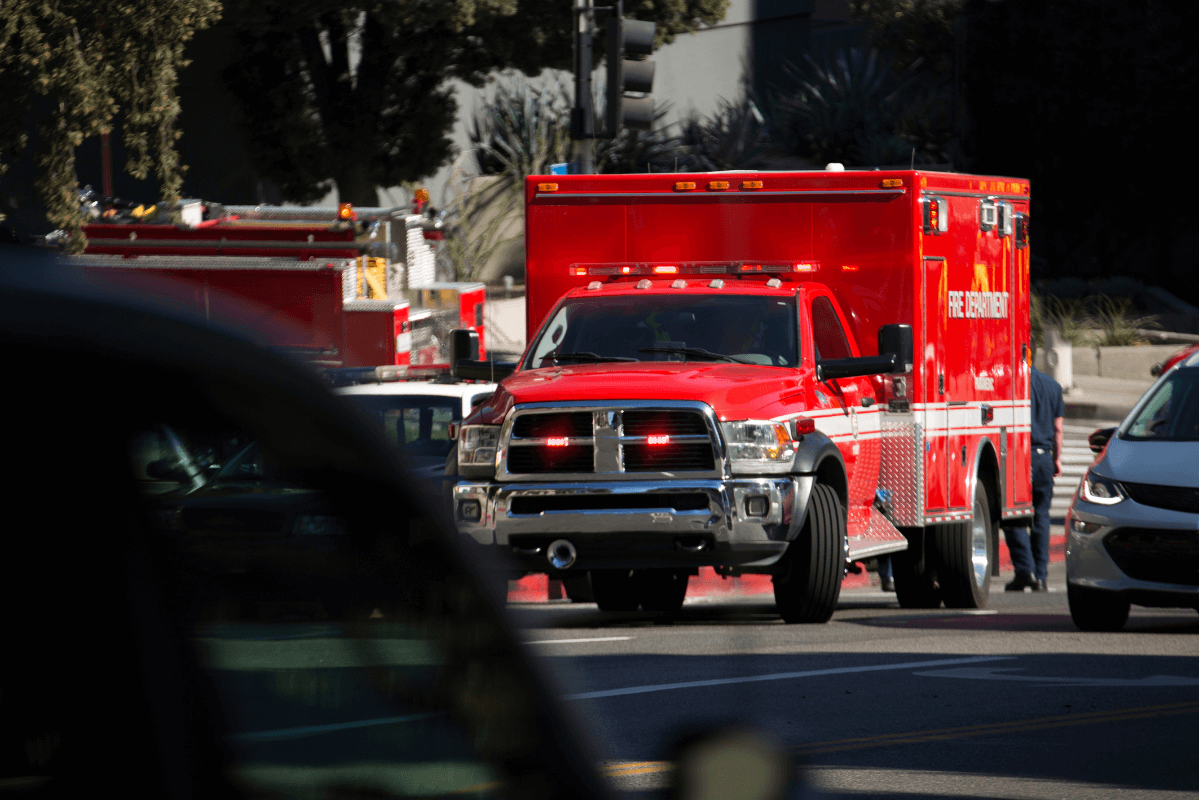Did you know that more than 80% of first responders experience traumatic events on the job? [1] Because they are on the frontlines of many emergencies, they are at a greater risk of developing Post Traumatic Stress Disorder (PTSD).
PTSD is a psychiatric condition that happens in people who have experienced or witnessed a traumatic event. While PTSD can result in fear, anger, and other emotions, people can find healing through treatment options. We’ll take a closer look at PTSD in first responders and explore how PTSD treatment in Scottsdale can help those experiencing this condition.
PTSD Prevalence in First Responders
With more than half of all first responders having some type of traumatic experience on the job, it should come as a no surprise that roughly 1 in 3 first responders will develop PTSD. [2] In the general population, PTSD occurs in 1 in 5 people. You can clearly see that PTSD is more prevalent in first responders. It’s also important to note that an estimated 400,000 first responders in America have at least one PTSD symptom. [1]
What types of first responders are experiencing PTSD? According to one study done in 2017, PTSD commonly occurs in these types of first responder jobs: [3]
- 15% of emergency personnel (paramedics)
- 13% of rescue teams
- 7% of firefighters
- 5% of police officers
With so many first responders having a traumatic experience that results in PTSD, it’s important to understand why the rates are so high. First responders are more likely to experience PTSD because of repeated exposure to traumatic events, stress, and lack of sleep. Because of the on-the-go speed of the job, many first responders don’t take the time to get the help they need to deal with their PTSD. They may not want to take the time off from work or worry about what co-workers may think. In reality, treating PTSD is the best thing that can be done. Prolonging treatment will only intensify symptoms and can lead to bigger problems.
Symptoms of PTSD
If you think you or someone you love may be experiencing PTSD, here are some of the symptoms to look for. [4]
- Having flashbacks of the traumatic memory
- Avoiding people or places connected to the traumatic event
- Having negative thoughts about yourself or the world around you
- Feeling hopeless or emotionally numb
- Irritability or angry outbursts
- Trouble sleeping
- Trouble concentrating
- Symptoms of depression and anxiety
- Loss of interest in activities
- Feelings of guilt or blame
Any of these symptoms could be red flags to seek treatment for post-traumatic stress, especially if you or a loved one is a first responder who experiences traumatic events daily.
Consequences of PTSD in First Responders
When first responders experience PTSD, the consequences can make it difficult for them to do their job properly and lead to other issues that should be addressed. Some issues can include:
- Strained relationships with family and friends
- Mental health problems
- Chronic Pain
- Weight Gain
- Substance abuse
- Suicidal thoughts
The issue of suicidal thoughts is especially concerning when you look at the fact that nearly 37% of EMS personnel and firefighters in the U.S. have suicidal thoughts at some point in their lives. That’s nearly ten times the average rate. [2] Whether this is due to PTSD or other issues, it’s something that can’t be ignored.
PTSD Treatment in Scottsdale is Crucial
When you look at statistics like the one above, seeking PTSD treatment is vital for first responders. At Healing Foundations Center, we offer a variety of treatment therapies to help people with PTSD deal with their emotions and PTSD symptoms.
Speaking with a mental health professional can help as well as different talk therapies that can also include a group setting. Some people work better in a group, while one-on-one sessions are more beneficial for others. Cognitive-behavioral therapy can also help by changing thought patterns that can worsen depression and anxiety symptoms.
Methods of psychotherapy can also be used to treat PTSD. These can include somatic experiencing, EMDR (Eye Movement Desensitization and Reprocessing), and Cognitive Restructuring. Each type of therapy can help people with PTSD deal with their thoughts and emotions.
For dissociative experiences, we also offer structural dissociation. Stabilizing a person’s dissociative symptoms is key in treating PTSD because it helps to bring awareness back to the mind and body while lowering the need to detach from experiences.
Get Help from Healing Foundations Center, PTSD Treatment in Scottsale
Each treatment plan is designed based on the needs of the individual. For more information on how Healing Foundations Center can help you or a loved one with PTSD, call us today or reach out to us online.
Sources:
[1] https://www.sciencedirect.com/science/article/abs/pii/S1359178918302416?via%3Dihub
[2] https://www.samhsa.gov/sites/default/files/dtac/supplementalresearchbulletin-firstresponders-may2018.pdf
[3] https://journals.sagepub.com/doi/10.1177/0145445517725048
[4] https://www.mayoclinic.org/diseases-conditions/post-traumatic-stress-disorder/symptoms-causes/syc-20355967
